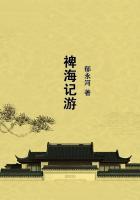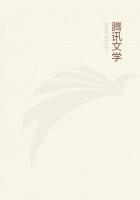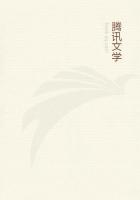The Christian is staring with a frantic intentness outwards. If we follow that clue steadily we shall find some interesting things.
A short time ago Mrs. Besant, in an interesting essay, announced that there was only one religion in the world, that all faiths were only versions or perversions of it, and that she was quite prepared to say what it was. According to Mrs. Besant this universal Church is simply the universal self. It is the doctrine that we are really all one person; that there are no real walls of individuality between man and man. If I may put it so, she does not tell us to love our neighbours; she tells us to be our neighbours.
That is Mrs. Besant's thoughtful and suggestive description of the religion in which all men must find themselves in agreement.
And I never heard of any suggestion in my life with which I more violently disagree. I want to love my neighbour not because he is I, but precisely because he is not I. I want to adore the world, not as one likes a looking-glass, because it is one's self, but as one loves a woman, because she is entirely different.
If souls are separate love is possible. If souls are united love is obviously impossible. A man may be said loosely to love himself, but he can hardly fall in love with himself, or, if he does, it must be a monotonous courtship. If the world is full of real selves, they can be really unselfish selves. But upon Mrs. Besant's principle the whole cosmos is only one enormously selfish person.
It is just here that Buddhism is on the side of modern pantheism and immanence. And it is just here that Christianity is on the side of humanity and liberty and love. Love desires personality; therefore love desires division. It is the instinct of Christianity to be glad that God has broken the universe into little pieces, because they are living pieces. It is her instinct to say "little children love one another" rather than to tell one large person to love himself. This is the intellectual abyss between Buddhism and Christianity; that for the Buddhist or Theosophist personality is the fall of man, for the Christian it is the purpose of God, the whole point of his cosmic idea. The world-soul of the Theosophists asks man to love it only in order that man may throw himself into it.
But the divine centre of Christianity actually threw man out of it in order that he might love it. The oriental deity is like a giant who should have lost his leg or hand and be always seeking to find it; but the Christian power is like some giant who in a strange generosity should cut off his right hand, so that it might of its own accord shake hands with him. We come back to the same tireless note touching the nature of Christianity; all modern philosophies are chains which connect and fetter; Christianity is a sword which separates and sets free. No other philosophy makes God actually rejoice in the separation of the universe into living souls.
But according to orthodox Christianity this separation between God and man is sacred, because this is eternal. That a man may love God it is necessary that there should be not only a God to be loved, but a man to love him. All those vague theosophical minds for whom the universe is an immense melting-pot are exactly the minds which shrink instinctively from that earthquake saying of our Gospels, which declare that the Son of God came not with peace but with a sundering sword. The saying rings entirely true even considered as what it obviously is; the statement that any man who preaches real love is bound to beget hate. It is as true of democratic fraternity as a divine love; sham love ends in compromise and common philosophy; but real love has always ended in bloodshed. Yet there is another and yet more awful truth behind the obvious meaning of this utterance of our Lord. According to Himself the Son was a sword separating brother and brother that they should for an aeon hate each other.
But the Father also was a sword, which in the black beginning separated brother and brother, so that they should love each other at last.
This is the meaning of that almost insane happiness in the eyes of the mediaeval saint in the picture. This is the meaning of the sealed eyes of the superb Buddhist image. The Christian saint is happy because he has verily been cut off from the world; he is separate from things and is staring at them in astonishment.
But why should the Buddhist saint be astonished at things?--since there is really only one thing, and that being impersonal can hardly be astonished at itself. There have been many pantheist poems suggesting wonder, but no really successful ones. The pantheist cannot wonder, for he cannot praise God or praise anything as really distinct from himself. Our immediate business here, however, is with the effect of this Christian admiration (which strikes outwards, towards a deity distinct from the worshipper) upon the general need for ethical activity and social reform. And surely its effect is sufficiently obvious. There is no real possibility of getting out of pantheism, any special impulse to moral action.
For pantheism implies in its nature that one thing is as good as another; whereas action implies in its nature that one thing is greatly preferable to another. Swinburne in the high summer of his scepticism tried in vain to wrestle with this difficulty.
In "Songs before Sunrise," written under the inspiration of Garibaldi and the revolt of Italy he proclaimed the newer religion and the purer God which should wither up all the priests of the world:
"What doest thou now Looking Godward to cry I am I, thou art thou, I am low, thou art high, I am thou that thou seekest to find him, find thou but thyself, thou art I."

